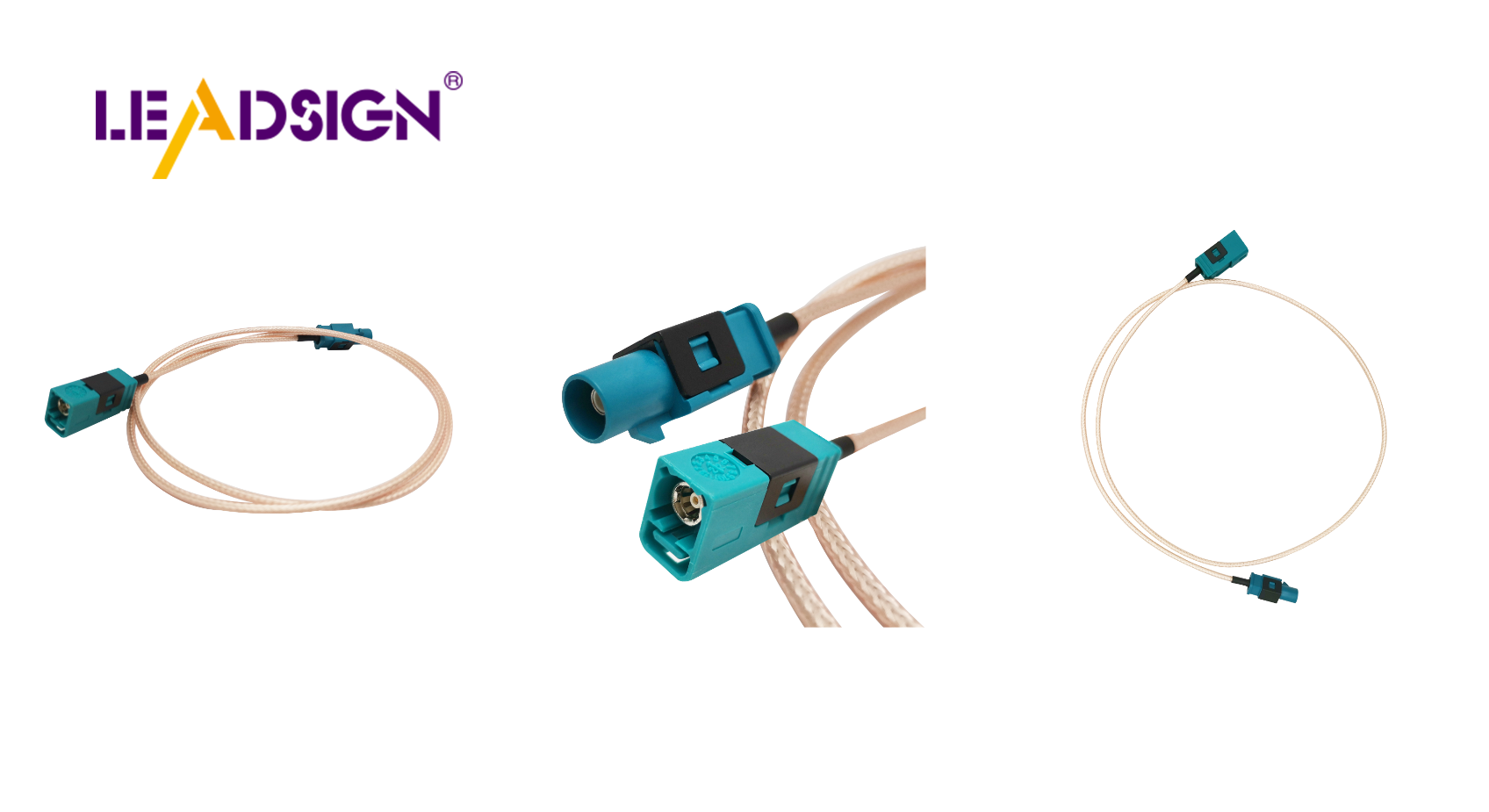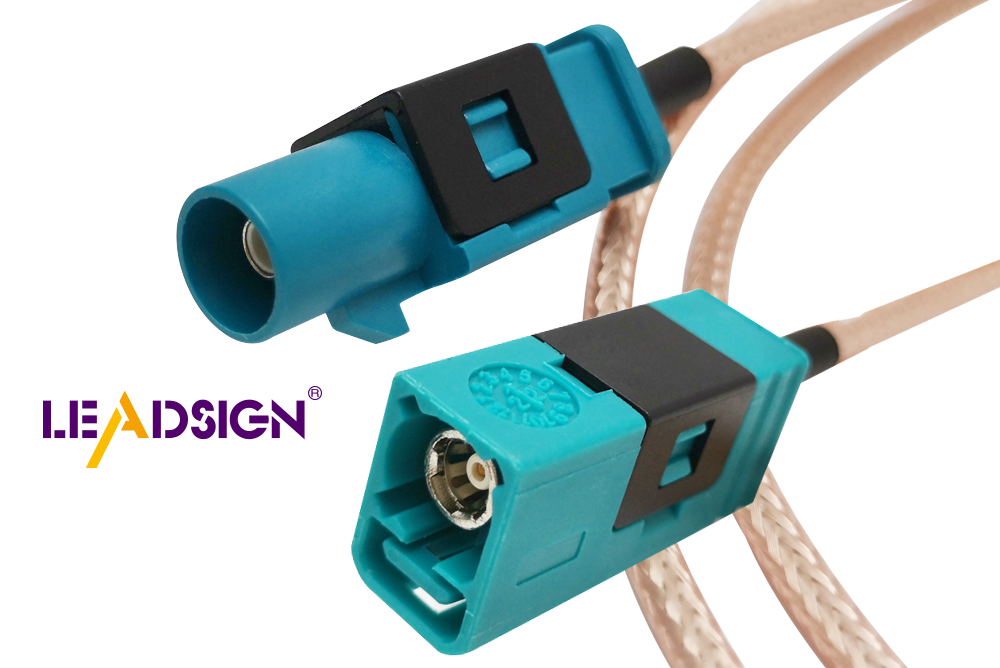Surprising Facts About Types of Connectors Electrical

Electrical connectors are very important in today's technology. There are various types of connectors electrical that have special uses for different designs and jobs. When you learn about connectors, you see how they help things connect better. They also make things work well and stay reliable. The market for these connectors is growing fast. This is because of more digital use and the need for good connections. In 2023, the market was worth USD 83.55 billion. It might grow to USD 147.44 billion by 2032. Knowing about different connectors helps you pick the right one.
Key Takeaways
Understanding different types of electrical connectors is crucial for selecting the right one for your projects, ensuring efficiency and reliability.
Plug and socket connectors are versatile and widely used in various devices, making them essential for both simple and complex setups.
Terminal blocks provide a safe and organized way to connect multiple wires, ideal for control panels and industrial applications.
Coaxial connectors are designed for high-frequency applications, ensuring clear signals and minimal interference, perfect for telecom and broadcasting.
New connector technologies, like magnetic and fiber optic connectors, offer unique benefits such as ease of use, durability, and high-speed data transmission.
Choosing the right connector based on your specific needs—like durability for harsh environments or efficiency for energy savings—can significantly enhance system performance.
Regular maintenance and proper selection of connectors can extend their lifespan and improve the overall functionality of your electrical systems.
Categories of Electrical Connectors

Knowing about different electrical connectors helps you pick the right one. Each type has special uses and benefits, making them important in many places.
Plug and Socket Connectors
General Benefits
Plug and socket connectors are common types of electrical connectors. You see them in many gadgets. They have a male plug and a female socket. The plug goes into the socket, making a strong link. This design keeps devices connected well. You can connect and disconnect them easily, which is handy. They give a good electrical link, helping power or data move well.
Common Applications
Plug and socket connectors are used in many things. They are in home appliances, audio and video gear, and computers. These connectors are also key in machines and cars. They work for both simple and hard setups. You can trust them to work well in different places.
Terminal Blocks
General Benefits
Terminal blocks are another key electrical connectors type. They carry electric current well. Made from metal, they make a strong link. Terminal blocks let you connect many wires safely. This makes them great for organizing wiring. They also help spread power safely.
Common Applications
You find terminal blocks in control panels and boards. They are used in factories and businesses. These connectors help with wiring in systems, power networks, and telecom gear. They handle high currents, so they work for tough jobs.
Coaxial Connectors
General Benefits
Coaxial connectors are special types of connectors electrical for high-frequency use. They keep signals clear and stop interference. You use them to link cables with radio signals. Coaxial connectors keep a steady link, which is key for good signals. They are easy to set up and fit well, stopping signal loss.
Common Applications
Coaxial connectors are in TV and radio, telecom, and networks. They connect antennas, dishes, and modems. These connectors are also in medical tools and military systems. They handle high frequencies, so they are needed in many areas.
Specific Benefits of Electrical Connectors
Knowing the benefits of electrical connectors helps you choose wisely. Let's see how they last long, are easy to use, and work well.
Durability
Electrical connectors are made to last in tough places.
Materials and Design Features
Makers use strong plastics and metals for connectors. These materials don't wear out or rust easily. Special coatings protect them from wetness and heat. Good copper makes them work well.
Applications in Harsh Environments
Strong connectors are needed in tough places. They work well in cars, factories, and outside. They stay strong in hot and hard conditions.
Ease of Use
Easy-to-use connectors are important. They make setting up and fixing things simple.
Installation and Maintenance
Connectors make putting things together fast. They save time in big projects. They also make fixing parts easy.
User-Friendly Designs
Simple designs make connectors easy for everyone. Many are easy to connect and disconnect. You can use them even if you're not an expert.
Efficiency
Connectors help things work better. They keep signals clear and save energy.
Signal Integrity and Performance
Connectors keep signals strong and clear. Coaxial ones are good for high signals. They stop interference, which is important for phones and TV.
Energy Efficiency in Applications
Connectors save energy by keeping connections strong. They work well in many places, even tough ones. Picking the right connectors makes systems work better.
New and Uncommon Connectors
In electrical connectors, new ideas keep coming. You might know common wire connectors, but some are less known and special. Let's look at two cool connectors: magnetic and fiber optic connectors.
Magnetic Connectors
Magnetic connectors are different. They use magnets to connect safely. Just bring the parts close, and they stick together.
Benefits and Uses
Easy to Use: No need to line up perfectly. Connect things fast, which is great when time matters.
Long-Lasting: They don't wear out quickly. No need to push hard, so they last longer.
Safe: If pulled, they come apart easily. This stops damage to devices or connectors. It's helpful where cables might get pulled.
Useful Everywhere: You see them in charging cables and data transfer. They are in medical tools and cars, where they must work well and be easy to use.
Fiber Optic Connectors
Fiber optic connectors are great for sending data. They use light to move data fast and hold a lot.
Benefits and Uses
Fast Data: Fiber optic connectors send data quickly. They are perfect for internet, phones, and TV, where speed is key.
Good Signals: They keep signals strong over long spaces. You won't lose signal like with old connectors.
Secure: Hard to tap into without being seen, so they are safe for secret data.
Where Used: You find them in phones, medical pictures, and army talks. They are needed where fast and good data is important.
By knowing these new types of connectors, you can choose the right ones. Whether you want easy use, long life, or fast data, there's a connector for you.
Knowing different electrical connectors is important. Each type has special benefits. They make projects flexible and efficient. Choose connectors based on your wiring needs. This helps them work well and last long. Picking the right connectors is key for system success. Whether you need strong, simple, or efficient ones, there is a perfect fit for every job. Stay informed and choose smartly to get the best from your electrical systems.
FAQ
How do I pick the right electrical connector for my project?
Choosing the right connector depends on what you need. Think about how safe and easy it should be. Consider where you'll use it. For outdoor use, get a waterproof and strong one.
What are the different types of electrical connectors and their uses?
There are many types of connectors. Each has a special job. Some common ones are:
Butt connectors: Good for joining two wires.
Spade connectors: Connect wires to things like switches.
Ring terminals: Secure connections to busbars or blocks.
Quick-disconnects: Easy to connect and disconnect.
Heat shrink connectors: Waterproof and great for outside.
What do electrical connectors do in wiring projects?
Connectors are key in wiring projects. They help electricity flow smoothly. Connectors make building and fixing systems easier. They let you change setups for different uses.
What are electrical connectors and why are they important?
Connectors link electrical systems. They move power and signals, making devices work. Without them, good connections would be hard.
Can I use the same connector for different jobs?
Some connectors work for many jobs. But, pick the right one for each job. Think about current, voltage, and conditions. Wrong connectors can cause problems.
How do magnetic connectors work and where are they used?
Magnetic connectors use magnets to connect. Bring parts close, and they snap together. They are easy and last long. You find them in chargers, medical tools, and cars.
What makes fiber optic connectors special?
Fiber optic connectors use light to send data fast. They keep signals strong over long distances. They are great for internet and secure data.
Are there connectors for tough places?
Yes, some connectors are made for tough spots. They are strong and waterproof. They work well in cars, factories, and outside.
How do I take care of my electrical connectors?
Keep connectors clean to work well. Remove dust and check for damage. Replace bad ones quickly. This helps them last longer.
Can connectors save energy?
Yes, good connectors save energy. They make strong links, cutting energy loss. Efficient connectors help systems work better and save money.
See Also
Exploring The Significance And Flexibility Of FAKRA Connectors
An In-Depth Look At FAKRA Connectors: Benefits And Setup
Discovering The Benefits Of Mini FAKRA Connectors In Today's Cars
Revealing The Adaptability Of FAKRA Connectors
Understanding The Role Of FAKRA Z Connectors In Automotive Use

